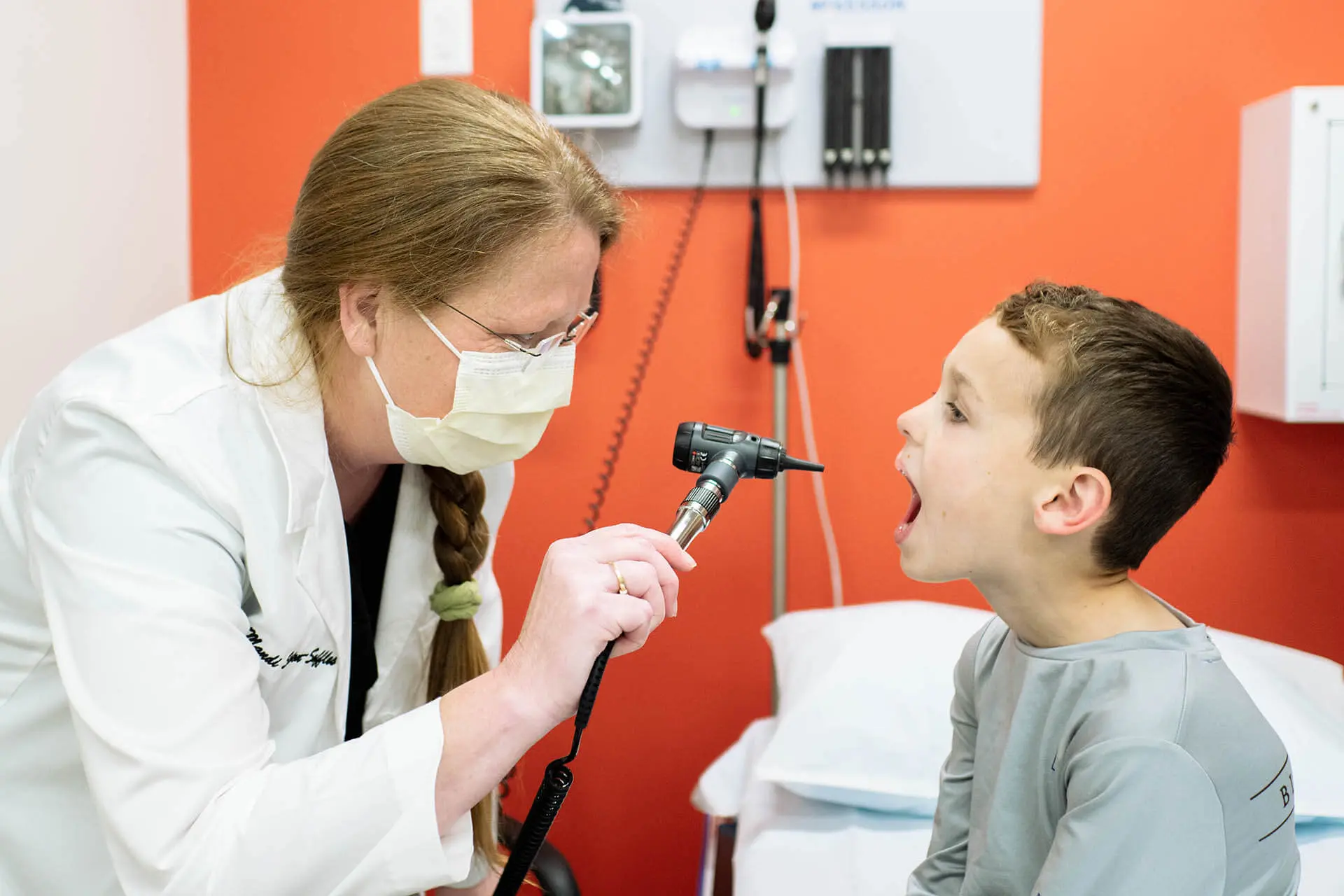All clinics open 7-days a week
Find The Location Nearest Covid-19 Testing
We think you’re located in zip code 97229. Not Right?
Cedar Hills Urgent Care Sick Visits Near Me
If you’re fighting sickness or minor injury but aren’t sure where to get treatment, visit AFC Urgent Care for nonemergency medical care. Open 7 days a week with extended hours on NW Cedar Falls Ste. 120.

If you think you have a life-threatening condition, such as a heart attack or stroke, call 911 immediately.
What is urgent care?
Urgent care is a walk-in health clinic that provides medical care for non-life-threatening injuries and illnesses. Urgent care clinics are staffed by experienced medical providers, such as doctors and nurses, who can diagnose and treat a wide range of common conditions.
Some of the common conditions that can be treated at urgent care include:
- Colds and flu
- Sore throats
- Ear infections
- Sinus infections
- Cuts and scrapes
- Minor burns
- Allergic reactions
- Urinary tract infections (UTIs)
While urgent care is not a replacement for your primary care physician it’s a convenient and affordable option for getting medical care when your primary care physician is unavailable.
Urgent Care vs. Emergency Room
According to the Centers for Disease Control and Prevention (CDC), 1 in 5 Americans will visit the ER at least once annually. Of these visits, as many as 70% could have been treated by an Urgent Care Center or a Primary Care Physician (PCP).
This is especially true for children. U.S. World and News Report reports that about 75% of children’s ER visits occur at night or on weekends, when their PCP is unavailable. Many of these trips are due to respiratory illnesses, or other similar illnesses, that could instead be treated by an Urgent Care facility like AFC.
Here are two of the most important reasons why you might want to consider AFC Urgent Care instead of the ER:
- Urgent Care is typically less expensive than the ER. The average cost of an ER visit is about $1,500, while the average cost of an urgent care visit is about $150.
- Urgent Care has shorter wait times than the ER. The average wait time in the ER is about 4 hours, while the average wait time in urgent care is about 30 minutes.
Urgent Care vs. Primary Care Physician
Urgent care and primary care are both important aspects of your overall health. However, they serve different purposes and should be used in different situations.
Urgent care is for non-emergency illnesses and injuries that need to be seen right away. This includes things like strep, skin infections, minor injuries and most temporary, disruptive health conditions. Urgent care is typically open longer hours than doctor’s offices and accept self-pay options.
Primary care is for your overall health and well-being. This includes things like annual physical exams, routine vaccinations, management of chronic conditions, such as diabetes or high blood pressure, prescription refills, women’s health care, and men’s health care. Primary care is important for building a long-term relationship with a doctor who knows your medical history and can provide you with preventive care.
What is not treated at urgent care?
Urgent care centers are a great option for common medical conditions, but they are not equipped to handle serious or life-threatening emergencies. If you have a serious injury or illness that requires immediate attention, you should go to a hospital emergency room.
Here are some examples of conditions that should be treated at an emergency room or PCP rather than an urgent care clinic:
Severe or life-threatening emergencies:
Conditions such as heart attacks, severe bleeding, severe allergic reactions (anaphylaxis), strokes, major trauma, and other critical emergencies are best treated at hospital emergency departments equipped to handle such situations.
Chronic or complex medical conditions:
Urgent care centers are more suited for providing immediate care for acute conditions. Patients with chronic or complex medical conditions that require ongoing management and specialized care should see their primary care physician or a specialist.
Severe mental health crises:
Urgent care centers may not have the necessary resources to manage severe mental health emergencies. Patients experiencing suicidal thoughts, severe psychiatric disturbances, or uncontrollable behavior should go to a psychiatric hospital or emergency room for appropriate evaluation and treatment.
Major surgeries or procedures:
Urgent care centers are not equipped to handle major surgical procedures. Patients requiring surgery should be referred to a hospital or surgical center.
Pregnant women in labor:
Expectant mothers in active labor should go directly to a hospital with labor and delivery services, as urgent care centers are not equipped for obstetric care.
Severe burns:
Urgent care centers can treat minor burns, but severe burns that involve large areas of the body or deeper tissue damage require evaluation and treatment at a hospital.
Chest pain:
While some urgent care centers can perform basic cardiac evaluations, chest pain should always be taken seriously, as it may be a sign of a heart attack or other cardiac issues, and thus requires immediate evaluation at a hospital emergency department.
Urgent care centers are not able to provide the same level of care as a hospital emergency room. They do not have the same equipment or staff, and they may not be able to provide the same level of urgency. If you have a serious injury or illness, it is important to get the care you need as soon as possible.

Don't wait to get the medical attention you need.
CALL US TODAY | (503) 305-6262


